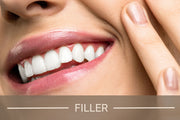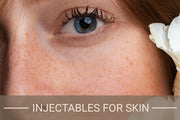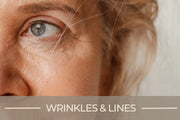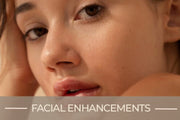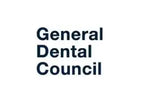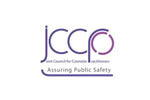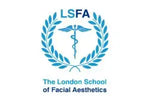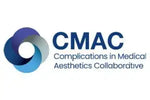Does Caffeine Affect Botox?

Content Verification

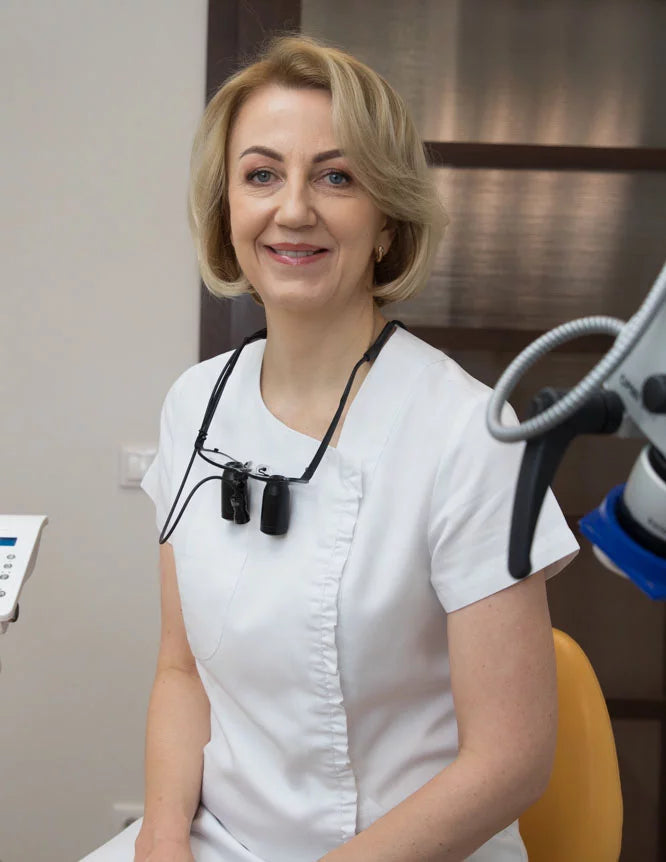

✨ Quick Summary ✨
Key Takeaways at a Glance:
- ☕ Caffeine won’t ruin your Botox, but moderation is key!
- 💧 Staying hydrated helps keep your skin fresh and results lasting longer.
- 🚫 Avoid excessive alcohol & smoking—your Botox will thank you!
- 🏃 Gentle movement is fine, but skip the intense gym session post-treatment!
- ⌛ Results take a few days—be patient and let the magic happen.
🧑⚕️ Expert Advice & Tips 🧑⚕️
💡 Pro Tip: Don’t touch or massage the treated area for at least 24 hours—it helps prevent Botox from moving where it shouldn't!
🥗 Eating antioxidant-rich foods (think berries & leafy greens) can help maintain youthful skin.
😴 Prioritise your beauty sleep—your skin regenerates while you snooze!
📆 Book a follow-up if unsure—our experts are here to help! 😊
Botox treatments are a popular choice for reducing wrinkles and achieving a youthful, refreshed appearance. These anti-wrinkle treatments temporarily relax facial muscles, smoothing fine lines and preventing new ones from forming. While Botox injections are safe and effective, certain factors, such as caffeine consumption, may influence results.
Many patients wonder whether their daily coffee habit affects Botox anti-ageing treatments. Caffeine impacts blood flow and metabolism, which could alter how Botox for wrinkles settles in the skin. But does it make a significant difference?
In this article, medical experts will explain how caffeine interacts with Botox treatments in London, whether it affects results, and how to optimise your treatment for the best outcome.
How Does Botox Work?
Botox anti-wrinkle injections work by temporarily blocking nerve signals to targeted muscles. This process reduces muscle movement, softening wrinkles and preventing new lines from forming. The effects gradually appear over several days and typically last for a few months before the muscle activity returns to normal.
The longevity of Botox treatments depends on several factors, including metabolism, blood circulation, and lifestyle choices. Individuals with a fast metabolism may break down Botox more quickly, while factors like hydration, diet, and overall health can influence how long the effects last. External elements such as stress, skincare routines, and sun exposure may also play a role in Botox longevity.
This raises an important question: Does caffeine impact Botox results? Given that caffeine affects blood flow, metabolism, and hydration, it is crucial to explore whether it can alter the effectiveness of Botox treatments in London and elsewhere.
Caffeine and Its Effects on the Body
Caffeine is a stimulant that affects the nervous system, blood flow, and hydration levels. It blocks adenosine, a neurotransmitter that promotes relaxation, leading to increased alertness and energy. This stimulant effect can also trigger a rise in adrenaline, which speeds up various bodily functions, including metabolism.
One key impact of caffeine is its ability to increase heart rate and blood circulation. This enhanced circulation can lead to temporary vasodilation, where blood vessels expand, potentially affecting how substances like Botox anti-wrinkle injections interact with the body. Some experts suggest that higher circulation might influence how Botox settles into the muscles.
Hydration also plays a role in the effectiveness of Botox anti-ageing treatments. Caffeine has mild diuretic properties, meaning excessive intake may contribute to dehydration. As hydration is essential for maintaining skin health and elasticity, this could indirectly impact how long Botox treatments in London and elsewhere last.
Can Caffeine Impact Botox Results?
Many patients wonder whether caffeine can alter the effects of Botox for wrinkles. Since caffeine speeds up metabolism, some believe it may contribute to a faster breakdown of Botox anti-ageing treatments. A higher metabolic rate can cause the body to process substances more quickly, potentially affecting how long Botox remains effective.
Caffeine also influences blood flow, which plays a crucial role in Botox treatments. Increased circulation can affect how Botox settles into the muscles. If blood flow is heightened immediately after Botox injections, there is a chance that the product could disperse slightly, leading to less precise results. Additionally, caffeine’s stimulant effect may increase minor side effects like swelling or bruising.
Dr. Laura Geige, Medical Director & Skin Expert from It’s Me & You Clinic, explains :"Caffeine increases blood flow, which can cause slight swelling or bruising after Botox injections. While it won't ruin the treatment, limiting caffeine may help optimise results."
Her insights highlight that while caffeine won’t stop Botox from working, reducing intake before treatment could help minimise unwanted side effects. Swelling and bruising occur when blood vessels expand, and excessive caffeine could make these effects more noticeable. For Botox treatments in London, patients may benefit from temporarily cutting back on caffeine to allow the injections to settle more smoothly.
Should You Avoid Caffeine Before and After Botox?
Some practitioners recommend reducing caffeine intake before Botox anti-wrinkle injections to minimise potential side effects. Since caffeine increases blood circulation and metabolism, it may contribute to mild swelling or bruising. While these effects are usually temporary, they can influence how smoothly Botox settles into the muscles.
One concern is that heightened blood flow could cause Botox to disperse slightly, leading to less precise results. Additionally, caffeine’s stimulant properties may increase heart rate, which could impact how quickly Botox is broken down. While there is no strict medical rule against caffeine before or after Botox, some experts believe a cautious approach can help optimise results.
Dr. Snieguole Geige, Dentist, Medical Doctor & Senior Adviser, states: "Although Botox is minimally invasive, reducing caffeine can help minimise potential side effects like bruising or mild swelling."
For Botox treatments in London, it may be beneficial to limit caffeine intake for 24 hours before and after injections. This can help reduce swelling and allow Botox to settle more effectively. If avoiding caffeine completely is difficult, switching to low-caffeine alternatives like herbal tea could be a good compromise. Once any initial side effects subside, patients can gradually resume their normal caffeine cons.
What Else Can Affect Botox Results?
While caffeine may play a role in Botox for wrinkles, other lifestyle factors can also influence treatment results. Patients looking for longer-lasting Botox anti-ageing treatments should consider the following habits:
- Alcohol – Alcohol thins the blood, which may increase bruising and swelling after Botox injections. Avoiding alcohol for at least 24 hours before and after treatment is often recommended.
- Smoking – Smoking reduces collagen production and affects skin elasticity, which can impact the effectiveness of anti-wrinkle treatments. Nicotine also restricts blood flow, potentially interfering with Botox results.
- Sun Exposure – Prolonged UV exposure can cause premature skin ageing and break down Botox more quickly. Wearing SPF and protecting the skin from excessive sun exposure can support longer-lasting results.
- Hydration and Diet – Staying hydrated helps maintain skin health and elasticity. A balanced diet rich in vitamins and antioxidants can also contribute to better overall skin quality.
- Medications – Certain medications, such as blood thinners or anti-inflammatory drugs, can increase the risk of bruising after Botox treatments. Patients should always inform their practitioner about any medications they take.
Dr. Giedre Narkiene, Dermatology Specialist, advises: "Good skincare, hydration, and avoiding excessive sun exposure can help Botox results last longer."
For Botox treatments in London, personal habits and environmental factors significantly affect treatment longevity. Patients who follow a consistent skincare routine, maintain a healthy lifestyle, and protect their skin may experience more sustained results from Botox anti-wrinkle injections.
Practical Tips for Longer-Lasting Botox Results
Patients seeking Botox near me often ask how to extend the longevity of their Botox anti-wrinkle injections. While results naturally fade over time, certain habits can help maintain a smoother, youthful appearance for longer.
- Limit Caffeine and Alcohol – Reducing caffeine and alcohol intake 24 hours before and after Botox injections may help minimise bruising and swelling, allowing the product to settle properly.
- Stay Hydrated and Maintain a Healthy Lifestyle – Drinking plenty of water supports skin elasticity, while a nutrient-rich diet can enhance skin health and overall Botox effectiveness.
- Avoid Excessive Exercise After Botox – High-intensity workouts immediately after Botox anti-ageing treatments may increase blood flow, potentially affecting how Botox settles. Light activity is fine, but avoid strenuous exercise for at least 24 hours.
- Follow Practitioner Aftercare Instructions – Patients should avoid rubbing or massaging the treated area, as this can cause Botox to move to unintended muscles. Following professional advice ensures the best possible outcome.
By making small lifestyle adjustments, patients can help maintain the effects of Botox treatments in London, achieving longer-lasting results.
The Bottom Line
While caffeine has a minimal impact on Botox treatments, reducing intake before and after Botox anti-wrinkle injections may help optimise results. Factors such as metabolism, hydration, and overall lifestyle also play a role in how long Botox for wrinkles lasts. Following expert advice, maintaining a healthy routine, and choosing an experienced practitioner can help achieve the best outcome. If you have concerns about your Botox results, always seek professional guidance before making any lifestyle adjustments.
Medical Disclaimer
This article is for informational purposes only and does not constitute medical advice. Botox treatments should always be performed by a qualified medical professional. If you have concerns about Botox, caffeine intake, or other lifestyle factors affecting your treatment, consult a licensed practitioner or your doctor for personalised medical advice.
